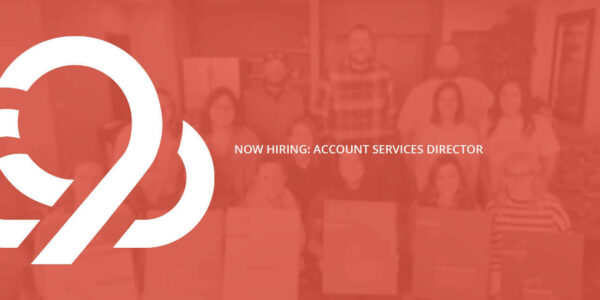
Don’t Launch a Facebook Ad Without These 5 Things
The internet offers a digital firehose of advice for marketers looking to get results from Facebook ads. However, few resources will tell you exactly how to set yourself up for success.
The fact is that Facebook will gladly take your advertising money no matter how you create, target, and place your ads. Facebook doesn’t care if you’re doing it right (as long as you’re not trying to swing an election).
In fact, while nine of 10 small business marketers run Facebook ads, most of them are missing their targets.
So before you kick off your next Facebook campaign, prepare for success by wrangling these five key elements into place.

1. Facebook Business Manager
Responsible Facebook advertising requires a responsible system. The best framework for that system is Facebook Business Manager.
As opposed to the standard Ads Manager, which is associated with your personal Facebook account, Business Manager acts as a hub where you can connect your people and assets on Facebook.
Even if you’re a marketing department of one, it’s still a good idea to manage your ads separately from your personal activities by creating a Business Manager account. Then, when your business grows, you’ll be able to easily add and remove team members (as well as vendors or agency partners) from your Business Manager.
Certain advanced Facebook targeting tactics, such as dynamic catalog retargeting, actually require a Business Manager. Even if you’re not using those more complex strategies now, it’s a good idea to prevent future headaches by using Business Manager right away.

2. A Facebook Pixel
Facebook’s advertising pixel is a small piece of code that you install on your website. The pixel tracks your website visitors and allows you to organize them into audiences so you can show them specific ads.
In addition to retargeting, the pixel also performs the important function of measuring conversion events, which are usually defined as views of specified pages. So, if your goal is to get more people to view your product pages, the pixel will tell you specifically how many product page views happened after people clicked on your ad.
Having the Facebook pixel installed and running on your site will also allow you to take advantage of new targeting features and advanced metrics as Facebook develops them in the future.
To install and connect your pixel to your ad account, go to the main menu of Business Manager > All Tools > Pixels.

3. Really Knowing Your Audience
It’s one thing to know where your audience lives, but it’s another thing to know what makes them tick. How do you figure that out? Just look at a list of your customers and see what they have in common.
How old are they? Do they have certain hobbies? Where do they work? Do they have kids?
The answers to these questions will allow you to target a more nuanced audience and stretch your ad dollars to reach more top-of-the-funnel visitors over time.
In a more literal sense, your Facebook pixel will allow you to “know” your website visitors (and what they view on your site) so you can retarget them with the most relevant ads. Knowing which pages they viewed, what they left in their shopping carts, which blog posts they read, and which products they considered will give you insight into their specific interests and needs.
Facebook has even built a tool — appropriately named “Audience Insights” — to show you the common demography and interests of the people who regularly interact with your ads, so you can laser-target them in the future.
Once you’ve gained some insight into the personas who purchase your products, create some Custom Audiences based on lists of current customers, fans, and web traffic.

4. A Content Strategy
Now that you know who your key audiences are, keep them interested!
If you know a person is looking for product A, don’t bother showing them products B, C, and D. Conversely, if product A doesn’t seem to hold their interest, consider running an ad showing products B, C, and D in a carousel or collection format to spark some engagement.
One of the cool things about Facebook advertising is that it allows you to easily run the same ad to multiple audiences. This is a valuable tactic for businesses with finite ad budgets. In fact, some audiences can be three times as expensive as others — so it pays to diversify!
The same diversity should apply to your ad creative. You have the freedom to run multiple versions of an ad in one ad set, so use it!
To put it plainly: Don’t put all your eggs in one basket. Use a blend of formats, photos, and text to find out what works best for your audience.
Mix it up! Testing ad creative and coordinating your campaigns will allow you to be as helpful as possible at every stage in the buyer’s journey.

5. Measuring the Impact
At 9 Clouds, we make decisions based on data (not impulse). So, it’s important for us to review our results and report them to our clients. You should do the same for yourself.
Every Facebook ad will give you some form of measurable result. Hone your message, audience, placements, or formats by testing a variety of ads over time.
Be sure to consider the current trends, too. When AdEspresso analyzed more than 750,000 Facebook ads over four years, it found that the ideal headline is around five words long, while the amount of text in ads is actually growing — it’s now common to see about 19 words in the ad’s text, which is up from 14 words in 2015.
But the analysis you can do isn’t limited to Facebook. Every click on your Facebook ad should register in Google Analytics. With the right UTM tags, you can even see which specific ads brought in the highest-quality traffic.
Checking all these metrics allows you to make positive improvements to your campaign budgets, targeting, and creative.
What Are Your Facebook Advertising Questions?
Facebook ads are an important component of digital marketing.
Looking for more Facebook resources? Check out more free Facebook tips on our blog.
If you have more questions about Facebook advertising (or about digital marketing in general), schedule your free digital marketing assessment with 9 Clouds!
Get Your Digital Assessment »


![Human vs AI A/B Test [Spoiler Alert: Humans Win!]](https://9clouds.com/wp-content/uploads/2024/02/Volvo-dealership-1-600x388.png)


